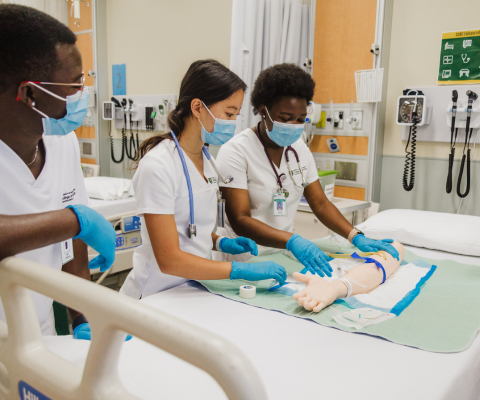BCDI 2030 launches second round of funding for scholarship projects for study in Canada

OTTAWA – The Canadian International Development Scholarships 2030 (BCDI 2030) program invites post-secondary institutions to submit applications through its second call for proposals for scholarship projects for studies in Canada, launched today. The call, worth $18 million CAD in total funding, is open to all Canadian post-secondary institutions that are members of Colleges and Institutes Canada (CICan) and/or Universities Canada (UnivCan).
Depending on the outcomes of this call, this could be the final opportunity for post-secondary institutions to submit applications for BCDI 2030 scholarship projects.
Funded by Global Affairs Canada (GAC) and co-administered by CICan and UnivCan, BCDI 2030 aims to strengthen the social and economic development of women and men, particularly women, from 26 eligible Francophonie and Commonwealth countries, as well as other Small Island Developing States (SIDS).
The eight-year program (2022-2030) provides quality education and training opportunities, including vocational and technical training, to reduce inequalities in access to higher education. It aspires to train women and men leaders to become agents of change who will positively influence their communities.
Canadian colleges and universities are eligible to submit only one proposal as a lead institution for a scholarship project in partnership with at least one higher education institution in one of the 26 eligible countries. However, they may participate as partners in multiple proposals with different lead institutions. Study projects in Canada are for a maximum of four years and must be implemented between 2025 and 2029.
The call closes May 30, 2024 at 3:00 p.m.
Post-secondary institutions that participated in BCDI 2030’s first call for proposals are eligible for funding in this second call, but the scholarship project must present a change from the previous proposal, be it a change of field, study program, partner and/or country.
Proposals will be reviewed by an arms-length, international selection committee using a rigorous points system and will be classified under two separate funding envelopes: $14M CAD for projects with partners in Francophonie member countries and $4M CAD for projects with partners in other eligible Commonwealth or SIDS countries.
- Projects taking place in countries that are exclusively members of the Francophonie will have a funding limit of $750,000 CAD per project (Senegal, Ivory Coast, Benin, Mali, Burkina Faso, Niger, Tunisia, Egypt, Congo, Mauritania, Chad, Central African Republic, Morocco, Madagascar, Democratic Republic of Congo).
- Projects in other BCDI 2030-eligible countries will have a funding limit of $500,000 CAD per project (Ghana, Kenya, South Africa, Tanzania, Guinea-Bissau, Haiti, Sao Tome and Principe, Togo, Gabon, Cameroon, Rwanda).
In keeping with GAC’s funding-sharing parameters (75% of funding granted to Francophonie member states, 25% to Commonwealth and/or SIDS member states, and 90% of funds target Sub-Saharan African countries) this second call proposes a prioritization system considering the above parameters and the level of funding already received through the first round of BCDI 2030 projects.
Consortiums between Canadian colleges and universities are strongly encouraged since they reflect an integrated approach to higher education, and such projects will be awarded extra points.
For all information about this call, including guidelines, the budget template and FAQs see the information folder for the second call for scholarship projects for studies in Canada.
The Universities Canada and Colleges and Institutes Canada consortium is offering a final information session in French on April 18 from 1:30-2:30 p.m. (EDT). Register
The BCDI 2030 team will also host a session on May 8, 2024 in Montreal at the Colloque régional du Québec et de la Francophonie about the program, this call for proposals and the best practices for submitting proposals.
For more information:
About Universities Canada
Universities Canada is the voice of Canada’s universities at home and abroad, advancing higher education, research and innovation for the benefit of all Canadians.
Media contact:
Lisa Wallace
Assistant Director, Communications
Universities Canada
[email protected]
Tagged: Global connections, Study abroad
Related news
-

Universities are advancing technology through international partnerships
-

Universities Canada's response to Minister Miller's announcement on international student caps
-

How international research partnerships are helping us tackle world health issues
-

Canada’s post-secondary institutions to help empower African students with the first 14 BCDI 2030 projects
